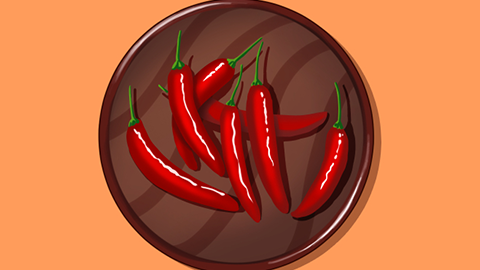What foods should be avoided after test tube embryo transfer?
Generally, after test tube embryo transfer, it is recommended to avoid eating spicy foods such as chili peppers and black pepper, crabs and hawthorn, cold beverages and ice cream, coffee and strong tea, as well as raw or undercooked meat. The detailed explanations are as follows:

1. Chili Peppers and Black Pepper
Spicy foods such as chili peppers and black pepper are highly irritating and may stimulate the gastrointestinal tract, causing symptoms like diarrhea or abdominal pain. These symptoms could potentially affect the environment for embryonic implantation, increasing the risk of implantation failure.
2. Crabs and Hawthorn
Foods such as crabs and hawthorn promote blood circulation and remove blood stasis, which may induce uterine contractions, leading to implantation failure or miscarriage. Women undergoing embryo transfer should avoid these foods to ensure stable implantation of the embryo.
3. Cold Beverages and Ice Cream
Cold foods and beverages such as cold drinks and ice cream may irritate the gastrointestinal tract, causing spasms of the smooth muscles in the gastrointestinal tract, which can in turn trigger uterine contractions, negatively affecting embryo implantation. Therefore, these cold foods should be avoided after embryo transfer.
4. Coffee and Strong Tea
Beverages such as coffee and strong tea contain caffeine, which may affect sleep quality and consequently interfere with embryo implantation. In addition, caffeine may pass through the placenta into the fetal circulation, potentially adversely affecting the development of the fetal nervous system.
5. Raw or Undercooked Meat
Raw or undercooked meat may carry pathogens such as bacteria and parasites, increasing the risk of infection. Infections may trigger inflammatory responses, which are detrimental to embryo implantation and development. Therefore, after embryo transfer, it is important to ensure that meat is thoroughly cooked before consumption.
After embryo transfer, a balanced diet is important. Adequate intake of nutrients such as protein, fat, carbohydrates, vitamins, and minerals should be ensured to meet the body's various needs. At the same time, it is advisable to avoid consuming overly greasy, spicy, cold, or irritating foods.






